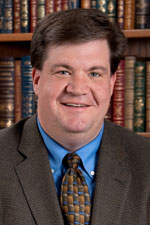Professor Mastrosimone Criticizes Shortened NLRB Union Campaigns

Professor Joseph Mastrosimone's article, "Limiting Information in the Information Age: The NLRB's Misguided Attempt to Squelch Employer Speech," has been published at 52 Washburn Law Journal 473 (2013).
The central promise of the National Labor Relations Act is freedom of choice to American workers to decide whether they wish to be represented by a labor union. Studies show that employees' choices are not always the product of uncoerced freewill. Many attribute employer coercion as hampering employee choice. Choice had traditionally been made through a secret ballot election conducted by the National Labor Relations Board (NLRB) approximately six to eight weeks after the petition for an election and after the union and the employer have "campaigned" for employee support. The NLRB has altered its representation process to drastically shorten the period from petition to election, significantly reducing the time in which an employer can communicate with his or her employees.
Professor Mastrosimone criticizes attempts to shorten the campaign and cut out the employer's role in the process as contrary to Congressional intent, to the First Amendment, and to the information gathering purpose of the campaign. He concludes that the shortened campaign seeks to prevent unlawful coercion by improperly and unwisely limiting protected and valuable information and offers other means to combat unlawful coercion that respect the employer's right and the employees' need for information from both the employer and the union.Professor Mastrosimone's "well thought out" article was highlighted on Workplace Prof Blog.